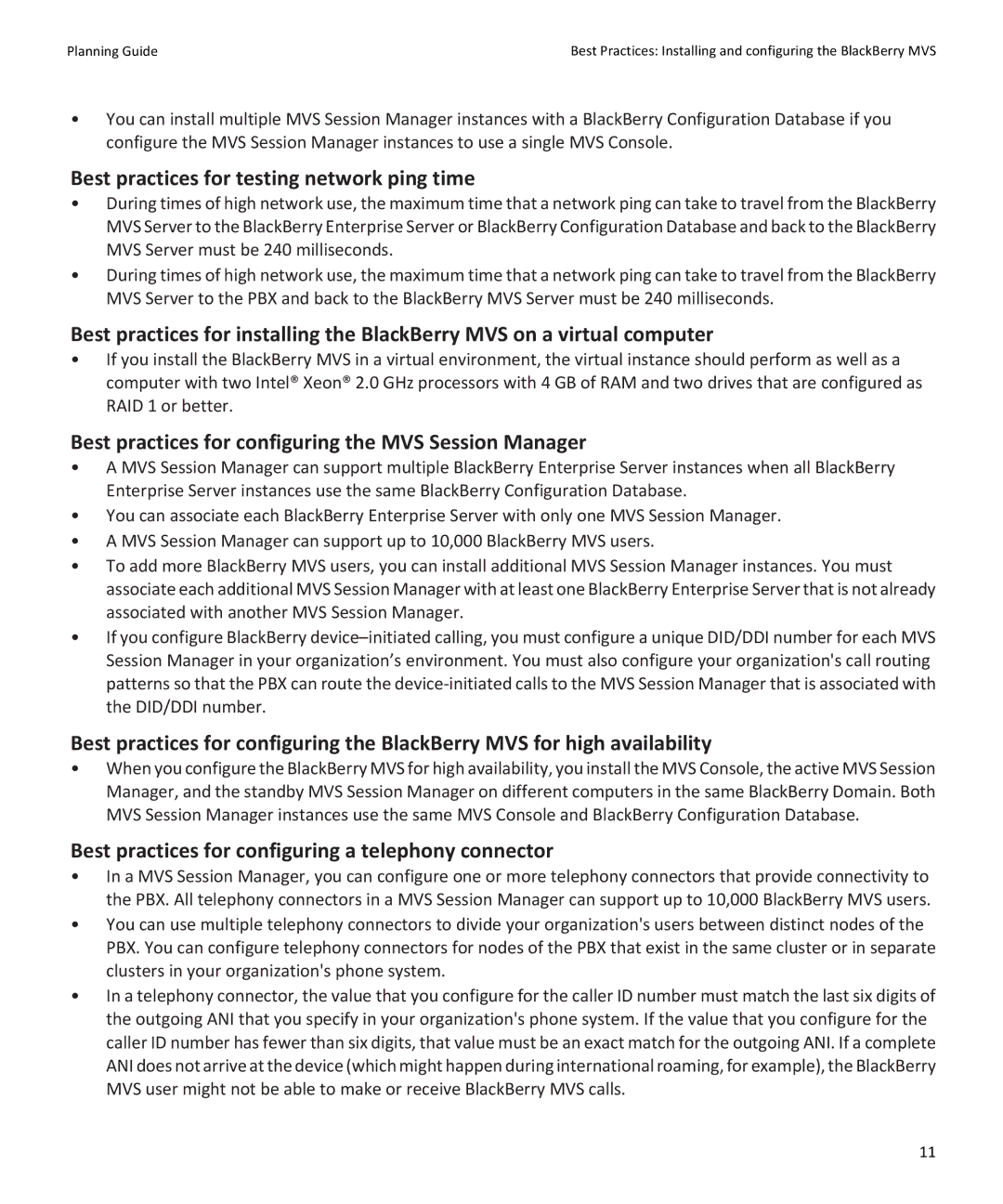Planning Guide | Best Practices: Installing and configuring the BlackBerry MVS |
•You can install multiple MVS Session Manager instances with a BlackBerry Configuration Database if you configure the MVS Session Manager instances to use a single MVS Console.
Best practices for testing network ping time
•During times of high network use, the maximum time that a network ping can take to travel from the BlackBerry MVS Server to the BlackBerry Enterprise Server or BlackBerry Configuration Database and back to the BlackBerry MVS Server must be 240 milliseconds.
•During times of high network use, the maximum time that a network ping can take to travel from the BlackBerry MVS Server to the PBX and back to the BlackBerry MVS Server must be 240 milliseconds.
Best practices for installing the BlackBerry MVS on a virtual computer
•If you install the BlackBerry MVS in a virtual environment, the virtual instance should perform as well as a computer with two Intel® Xeon® 2.0 GHz processors with 4 GB of RAM and two drives that are configured as RAID 1 or better.
Best practices for configuring the MVS Session Manager
•A MVS Session Manager can support multiple BlackBerry Enterprise Server instances when all BlackBerry Enterprise Server instances use the same BlackBerry Configuration Database.
•You can associate each BlackBerry Enterprise Server with only one MVS Session Manager.
•A MVS Session Manager can support up to 10,000 BlackBerry MVS users.
•To add more BlackBerry MVS users, you can install additional MVS Session Manager instances. You must associate each additional MVS Session Manager with at least one BlackBerry Enterprise Server that is not already associated with another MVS Session Manager.
•If you configure BlackBerry
Best practices for configuring the BlackBerry MVS for high availability
•When you configure the BlackBerry MVS for high availability, you install the MVS Console, the active MVS Session Manager, and the standby MVS Session Manager on different computers in the same BlackBerry Domain. Both MVS Session Manager instances use the same MVS Console and BlackBerry Configuration Database.
Best practices for configuring a telephony connector
•In a MVS Session Manager, you can configure one or more telephony connectors that provide connectivity to the PBX. All telephony connectors in a MVS Session Manager can support up to 10,000 BlackBerry MVS users.
•You can use multiple telephony connectors to divide your organization's users between distinct nodes of the PBX. You can configure telephony connectors for nodes of the PBX that exist in the same cluster or in separate clusters in your organization's phone system.
•In a telephony connector, the value that you configure for the caller ID number must match the last six digits of the outgoing ANI that you specify in your organization's phone system. If the value that you configure for the caller ID number has fewer than six digits, that value must be an exact match for the outgoing ANI. If a complete ANI does not arrive at the device (which might happen during international roaming, for example), the BlackBerry MVS user might not be able to make or receive BlackBerry MVS calls.
11
